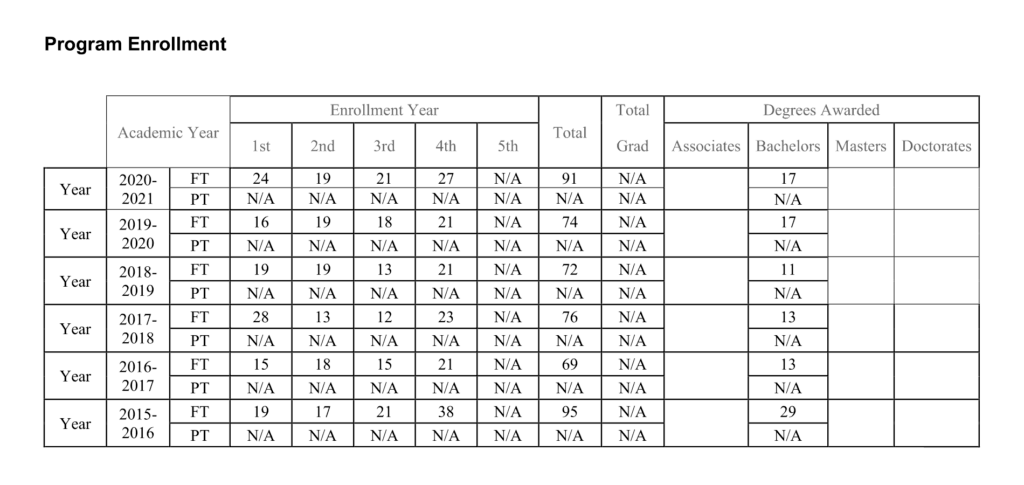Bachelor’s Degree in Information Technology (BSIT)
College of Information Technology
Useful Resources
This degree is designed to provide the students with knowledge and learning in the various areas of Information Technology. It is aimed to provide students with critical competences and cutting-edge skills of core information technologies of human computer interaction, information management, programming, networking, software engineering, databases, system administration and web systems and technologies. It is also targeted to enable students to critically analyze, identify, and solve real-world problems; to design, implement, and evaluate a computer-based system, process, component, or program to meet desired needs. Moreover the students acquire skills to manage information effectively and integrate IT-based solutions into the user environment. It is also targeted that the students acquire an ability of a keen appreciation to demonstrate, professionalism and ethical behavior, including responsible teamwork, creativity and communication skills with professional attitudes, and be prepared for the complexity of the actual work environment and life-long learning.
Core Competence
All College programs received full confidence in a review conducted by the Quality Assurance Authority. All College programs are validated by NQF and listed.
The college teaching philosophy is to apply problem solving based learning and reality-based approach to education to enable the students to have critical knowledge and understanding of core information technologies, such as, human computer interaction, information management, programming, networking, and web systems, and to be able to critically analyze, model, design, solve IT and real world problems.
Our programmes are designed in tune with the local needs of the industry and business and in accordance with international standards (IEEE and ACM).
Program Facts
- Department/Center: Information Technology Department.
- Program Title: Bachelor of Information Technology (BSIT).
- Title of Final Award: Bachelor’s Degree in Information Technology.
- Awarded Level (NQF): 8.
- Modes of Attendance offered: Attendance is compulsory for full-time and part-time students
- The program runs over 4 years period
- The program is taught in English Language
- The program is consists of 134 credit-hours covering 45 course
- The program achieved full confidence in 2013 by Bahrain Quality Assurance Authority (BQA)
- The program has been placed on Bahrain’s National Qualification Framework (NQF)
Student Outcomes
Graduates of the program will have an ability to:
- Analyze a complex computing problem and to apply principles of computing and other relevant disciplines to identify solutions.
- Design, implement, and evaluate a computing-based solution to meet a given set of computing requirements in the context of the program’s discipline.
- Communicate effectively in a variety of professional contexts.
- Recognize professional responsibilities and make informed judgments in computing practice based on legal and ethical principles.
- Function effectively as a member or leader of a team engaged in activities appropriate to the program’s discipline.
- Identify and analyze user needs and to take them into account in the selection, creation, integration, evaluation, and administration of computing-based systems.
Educational Objectives
- Exhibit the relevant skills and knowledge for pursuing the IT career in industry including
corporate as well as government sector. - Pursue life-long learning leading to entrepreneurship, research and development.
- Contribute to the society through their ethical and professional norms by demonstrating
them in IT professions.
General View of Course Intended Learning Outcomes
A- Knowledge and Understanding
- Concepts and Theories: Demonstrate critical knowledge and understanding of mathematics and current technical concepts and practices in the core information technologies of human computer interaction, information management, programming, networking, and web systems and technologies.
- Contemporary Trends, Problems and Research: Be cognizant of up-to-date trends, problems, research issues, and methods in information technology.
- Professional Responsibility: Demonstrate an understanding of best practices and standards of information technology and their application
B- Subject-specific skills
- Problem Solving: An ability to critically analyze and identify user needs and take them into account in the selection, creation, evaluation and administration of computer-based systems.
- Modeling and Design: An ability to model, design, implement and evaluate a computerbased system, process, component, or program to meet desired needs.
- Application of Method and Tools: An ability to use current techniques, skills and tools necessary for computing practice.
C- Critical-Thinking Skills
- Analytic: Critically analyze the complexity of real problems, evaluate the possible alternative computable solutions and analyze their performance and impact on individuals, organizations and society.
- Synthetic: Demonstrate the ability to integrate existing and new technologies into unified computer systems and effectively integrate IT-based solutions into the user environment.
- Creative: Innovate and apply new alternative methods to solve IT and real world problems.
D- General and Transferable Skills (other skills relevant to employability and personal development)
- Communication: Express and communicate ideas effectively in written and oral form.
- Teamwork and Leadership: An ability to function effectively on teams, as member or leader with decision making responsibilities, to accomplish a common goal.
- Organizational and Development Skills: Demonstrate an ability to manage learning tasks independently and professionally with a view to inculcating skills for self development and life long learning in order to effectively prioritize, plan, manage and allocate appropriate resources to implement tasks.
- Ethical and Social Responsibility: Demonstrate an understanding of professional, ethical, legal security and social issues and responsibilities.
Entry Requirements
To be eligible for consideration for admission at the
undergraduate level, an applicant should normally hold a recently issued
recognized secondary school certificate or its equivalent. The requirements for
admission stated by the University are in all cases the minimum demanded for
admission, and their fulfilment by a candidate does not automatically ensure
his /her selection. Prior to enrolling at Ahlia University, citizens of non-GCC
States should secure residence permits in the Kingdom of Bahrain; otherwise,
their admission will be conditional and subject to being rescinded at the
discretion of the University
English Language Proficiency
Applicants must demonstrate a level of English proficiency consistent with the demands of an academic programme taught and assessed almost exclusively in the English language. This can be done in one of the following ways:
- Submission of an internationally recognized certificate of English language proficiency, e.g. Cambridge ESOL SCE or City & Guild’s Pitman Intermediate Level.
- Attainment of an acceptable score on an internationally recognized examination of English language proficiency, typically either IELTS or TOFEL.
- Passing the University English language placement test.
Recognized Secondary Certificates
- Bahraini secondary School certificate (Tawjihia).
- Secondary school certificates awarded by private secondary school in the Kingdom of Bahrain provided such certificates are endorsed by the Bahraini Ministry of Education.
- Arab secondary school certificates awarded by Arab Ministries of Education. Where applicable, the streams of these certificates are given the same consideration as the Bahraini Tawjihia.
- Any other certificates recognized by the Bahraini Ministry of Education as equivalent to a Tawjihia certificate.
Programme Specific Requirements
The applicants who meet the following programme specific admission requirements will be admitted to the programme:
Academic Score in the Secondary School Certificate (Tawjihia) or its Equivalent
- Unconditional Acceptance: 65%
- Conditional Acceptance; Passing an interview: 50%
- Tracks Accepted: Science, Technical, Commercial & General
Undergraduate Tuition & Fees
The estimated duration for completion of a Bachelors Degree at Ahlia University is 4 years. This is structured around 134 credit-hours covering 45 courses.
The duration of study for each course is fifteen weeks, covering approximately 45 study hours.
| Item | Fee |
|---|---|
| Application Fee | BD 20 |
| Registration Fee | BD 200 |
| Placement Tests Fee ( if applicable ) | BD 40 |
| Orientation Courses ( if applicable ) | BD 1,200 |
| 100 Level Courses – 12 courses ( BD 300 Per Course ) | BD 3,600 |
| 200 Level Courses – 11 courses ( BD 330 Per Course ) | BD 3,630 |
| 300 Level Courses – 11 courses ( BD 360 Per Course ) | BD 3,960 |
| 400 Level Courses – 11 courses ( BD 390 Per Course ) | BD 4,290 |
Tuition Discounts
| Item | Discount |
|---|---|
| Orphans and people with special needs | 50% |
| High school average of 95% or above | 50% |
| High school average of 90% or above | 25% |
| High school average of 80% or above | 20% |




